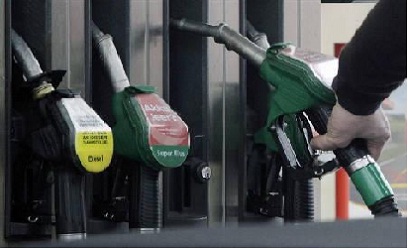 The Unnayan Onneshan, an independent think-tank, in its latest monthly economic update states that the economy has been experiencing an accelerated growth of import relative to export, resulting in an augmented imbalance in trade in the current fiscal year. The trade deficit has widened by more than USD 5803.4 million during the seven months of the current fiscal due to soaring costs of oil import and a sluggish global economy sapping the demands for ready-made garments exports.
The Unnayan Onneshan, an independent think-tank, in its latest monthly economic update states that the economy has been experiencing an accelerated growth of import relative to export, resulting in an augmented imbalance in trade in the current fiscal year. The trade deficit has widened by more than USD 5803.4 million during the seven months of the current fiscal due to soaring costs of oil import and a sluggish global economy sapping the demands for ready-made garments exports.
The research organization in its March issue of “Bangladesh Economic Update” warns that the trade deficit as a percent of GDP might be increased 1.56 percentage at the end of the current year than that of the last year, reaching at 10.02 from 8.46 in FY 2010-11.
The report adds that import has risen by 16.14 percent to USD 19728 million while exports have risen by 14.28 percent to USD 13924.6 million during the first seven months of the current fiscal year than that of the same period of the previous fiscal year. The government has set its export target at USD 26500 million in the current fiscal year, higher than nearly 16 percent from FY 2010-11. The research organization alerts that under the business as usual scenario, export might reach at USD 24267.80 million, import at USD 35586.86 million and trade deficit at USD 11319.06 million by June 2012.
Disaggregating the statistics of import by items, the Unnayan Onneshan notes with alarm that trade deficit is likely to increase in the current fiscal year, if growing imports of petroleum products along with non-essential items continue.
 The fuel import has increased by 68 percent to USD 2.42 billion in first half of the current fiscal year, boosted by both increasing prices and higher volumes due to excessive dependence on fuel-fired quick rental power stations.
The fuel import has increased by 68 percent to USD 2.42 billion in first half of the current fiscal year, boosted by both increasing prices and higher volumes due to excessive dependence on fuel-fired quick rental power stations.
Despite making a best-case scenario in terms of the receipt of remittances at the threshold level of USD 13069.45 million in the current fiscal year, under the business as usual scenario, the Unnayan Onneshan cautions that foreign exchange reserve might further decline to USD 10004.86 million at the end of the current fiscal year.
“The ever-increasing trade deficit of Bangladesh economy exposes several risk factors including pressure on current account balance and the economy may not revive from these shortfalls, if the current trend persists, ” alerts the research organization.
Terming the policies taken by government to address the current situation as adhoc in nature, the Unnayan Onneshan urges the government to embark on a mix of medium to long-term policies to boost exports, generate employment and accelerate development.
Analysing the current situation of the economy, the Unnayan Onneshan suggest the government to immediately harmonise fiscal and monetary policies in the backdrop of rising fiscal and trade deficits, growing inflationary pressure and possibility of contraction in growth.
“The current rise in the trade deficit is partly internal (e.g. the decision of installing oil-based quick rental power plants) and partly global (e.g. the downturn in export destinations) and hence, a coordinated monetary and fiscal policies is the need of the hour to stave off further deterioration of terms of trade, current account balance and national output,” adds the think-tank.
@ rrajowan – Source: energy bangla.com




































